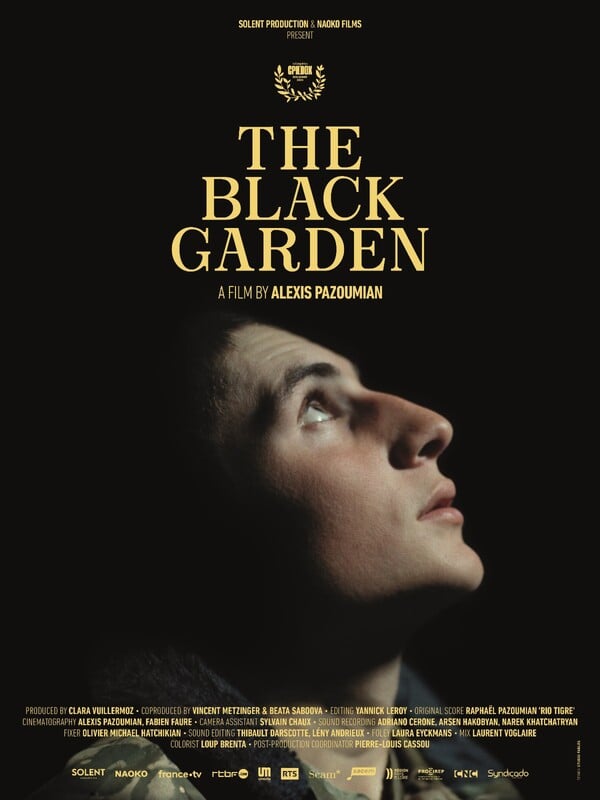
Long métrage 01:20:00 - documentaire - France
Réalisé par / Directed by
Alexis Pazoumian
2025
Synopsis : Samvel and Avo, Erik and Karen live in the land of a centuries-old conflict, formed on the rubble of the Russian Empire. In Nagorno-Karabakh, people live, dream and prepare for a tragedy that is always on the horizon. Over 3 years, Alexis Pazoumian films the epilogue of the black garden, a fitting metaphor for a land where war waits for no one.
I am a French-Armenian. My grand-grand-parents were born in Turkey and fled to France after the 1915 genocide. I’ve been lulled by Armenian culture since my childhood but did not know much about Armenia. Being a photographer, I travelled there and started to photograph this land a lot. This was my way to connect with the country and its inhabitants. I found out about the history of Nagorno-Karabagh just after the “4-days war” in 2016. Karabagh literally means “Black Garden” referring to the large dark coniferous forest covering the territory. It is a contested and landlocked region in the South Caucasus that has seen nearly 30 years of conflict between Armenia (of which Nagorno-Karabakh was a former province) and Azerbaijan. When I visited Talish for the first time, the village was completely destroyed and emptied of its inhabitants. I was struck by the violence of the destruction, nothing had been spared, not even the school, the village was deserted. The stigmatas of the war are visible both in the landscape and on the faces of its inhabitants. A "frozen" conflict that can resurface at any moment. Talish seemed to me to be an ideal starting point for a film about a forgotten conflict, a “blurred-zone” of history that nobody understands nor really cares about. I began my location scouting in January 2020, a few months before the war broke out meeting indelible characters. Avo and Samvel are two 10-year-old kids who are inviting me around in all their games and wanderings, in Talish then Yerevan in exile. Erik is a young soldier from the Talish barracks who lost a leg during an attack. His life changed forever and has to readjust it far from his homeland and bearing on the burden of “war hero” the society granted him. Then Karen the lumberjack and desperate war veteran. In a world steeped in patriotism and military culture, I intended to portray these characters caught in the limbos of war. Even after the fire ceased, war cruelly affected our characters in their daily life, their mentality, their inner balance. A large part of the film takes place in Armenia since most of my characters are exiled today, but I also made their homeland exist by going back to Nagorno-Karabakh: what is left of it, the desolate and disfigured landscapes, its lost souls like that of Karen who is a refugee in Stepanakert. This territory represents an open wound for the characters. It’s their dark and beloved land, their black garden. I’ve been shooting over 3 years, going there at least twice a year, caught by the destiny of these young fellows, telling a tragic and universal reality.
Ce film n'est pas éligible au marché du film.
Service offert lors de l'inscription.
Ce service est sous l'unique responsabilité des ayants droits, vous pouvez gérer ces paramètres dans votre "Espace Personnel" - Rubrique : "Industrie".